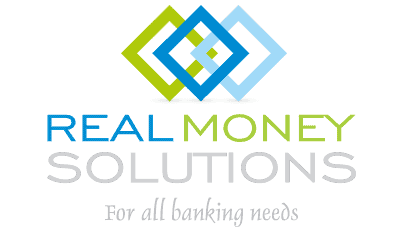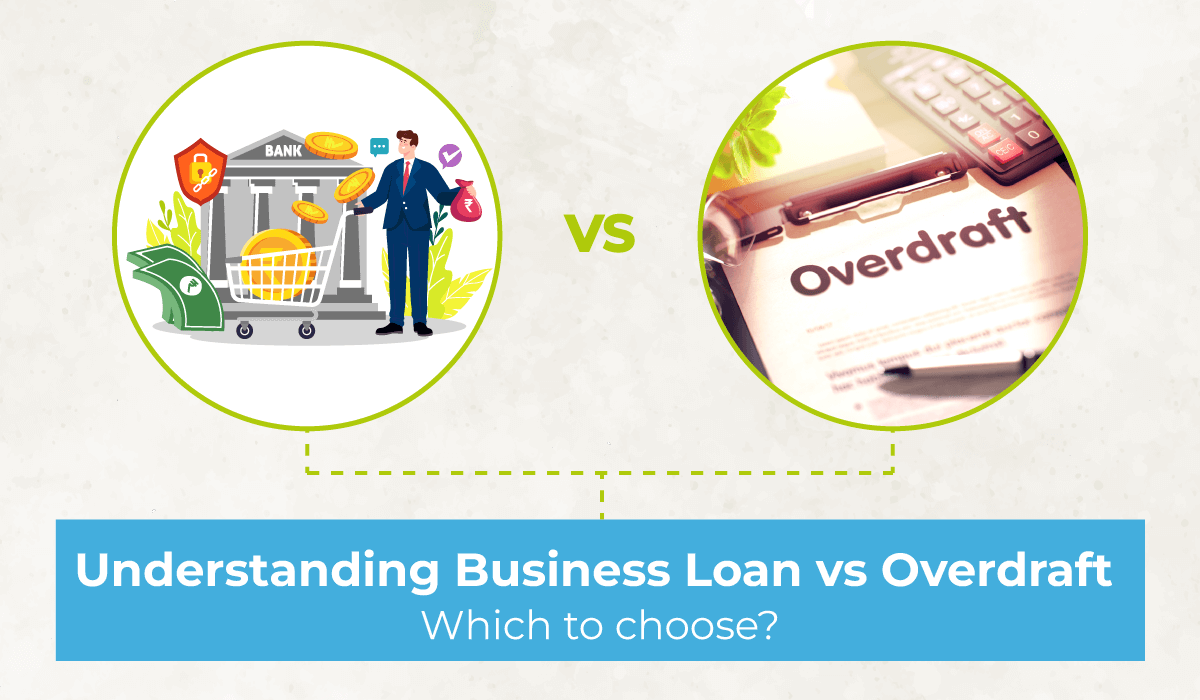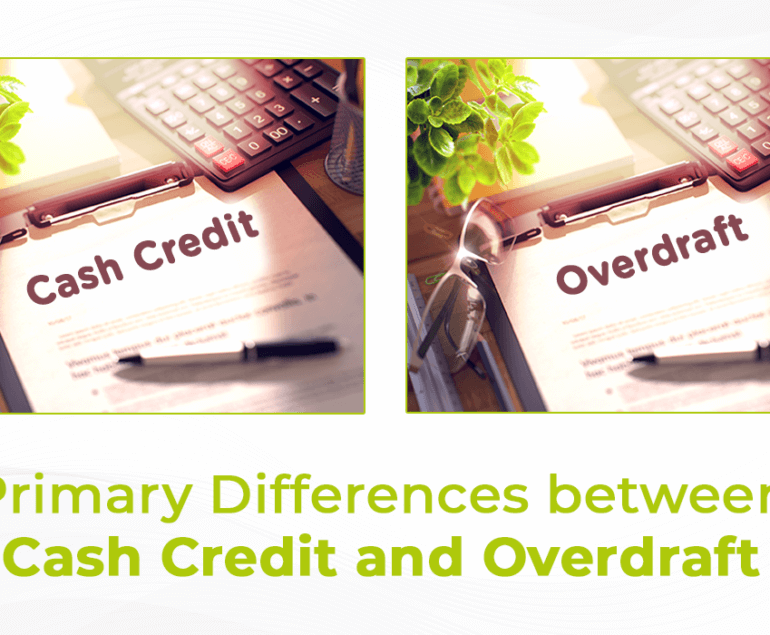If you are planning on starting an entirely brand-new company or growing your existing business, you will need some financial help in the future.
In order to get started, begin business operations, grow, or even meet unforeseen expenses, businesses need funds regardless of industry, nature, or size.
Business loans and overdraft for business are two popular financing options. While the purpose of both financial products is to provide the borrower with funding support, the nature and features of these products differ.
So, how do you know which credit option is best for you? We’ll help you find out. Understanding the difference between business loan vs overdraft is essential to making the right decision.
Make the Right Choice for Your Business: Understand the Differences Between Business Loans and Overdrafts and Apply Now for the Perfect Funding Solution
About Overdraft
Overdraft is defined as the type of financing option available to business owners where the financial institutions or bank can offer you the overdraft facility.
It allows you to withdraw funds up to a certain limit from your current account, even if it doesn’t have enough money at the moment.
Businesses can use this financing facility to pay day-to-day expenses, like wages, etc.
Also Read: Primary Differences Between Cash Credit And Overdraft
About Business Loan
A business loan is a type of loan offered to business owners or individuals for the purpose to expand business.
It helps business owners expand their operations, meet working capital needs, get equipment or machinery, invest in infrastructure, buy raw materials or stock inventory, hire employees, and train them.
Also remember there are two types of business loans, secured and unsecured business loans.
Also Read: 9 Different Types Of Business Loans In India
Key differences between a business loan and an overdraft
Now, as you are familiar with both financing options. So to make the right choice, you must understand the differences between business loans and overdrafts.
| Type | Business Loan | Overdraft |
| Definition | The term business loan refers to borrowing funds from a financial institution or bank for a specific period secured by collateral (for a secured loan). | Even with a zero bank balance, you can withdraw an amount |
| Interest rates | As per the loan amount provided | With regard to withdrawals |
| Loan Types | Borrowed capital | This is primarily a credit facility |
| Interest Rate Calculation | Monthly | Daily |
These were just an overview of the difference between each financing option. Continue reading to get a detailed understanding of business loans vs overdrafts.
Product Nature
Business finance refers to a lump sum loan. Business loan overdrafts are one-time borrowings where a bank account is maintained, and funds are drawn up to a predetermined limit. Therefore, you can pay off the overdraft with EMIs, and the former with bank deposits.
Collateral
It depends on the loan type and whether you must pay collateral for secured or unsecured business finance. As opposed to that, an overdraft doesn’t require you to pledge any collateral as security for the loan.
An interest rate
The interest rates on your business loan are calculated monthly, and you will see this reflected in your monthly payment. Unlike overdrafts, overdraft rates are calculated day by day, which means that changes in them can be made daily.
Duration
The benefit of business finance is the ability to borrow a larger sum for a longer period, making it ideal for financing long-term goals. In contrast, an overdraft is an ideal solution for short-term financial requirements, such as a cash shortage, which may arise from time to time, and for short-term financial obligations.
Pros and cons of business loans
It is essential to consider some crucial factors before taking a business loan. So, before making a final decision, you should consider the following pros and cons of business loans.
Pros of business loans
- Improve Cash Flow: Irregular revenue streams are one of the small businesses’ biggest cash flow challenges. The main advantage of this type of loan is that irregular revenue streams are not an issue. If you need capital to invest in new equipment, pay payroll, or cover other expenses, a commercial business loan can help.
- A flexible tenure policy: The loan tenure is up to you. The year-long Business Loan is an option for short-term borrowing to cover working capital expenses. To expand your business, you can take out a longer-term loan, like a four-year loan, if the loan is to grow your business.
- No collateral is required: A business loan can be applied without requiring collateral if you meet the eligibility criteria. Small businesses with fewer assets may find business loans an attractive alternative because they are unsecured and have a higher acceptance rate.
Cons of business loans
- Loans are not available to all businesses: The approval or rejection of business loan applications is subject to many rules and conditions set by banks. It is unlikely that all businesses will meet the financial institution’s criteria.
- Lack of flexibility: Commercial business loans require you to know how to repay the loan and what you plan to do with the money. There are few flexibility options for commercial business loans, as opposed to merchant cash advances, business lines of credit, or equipment loans.
Also Read: Why are Unsecured business loans better for small businesses?
Pros and cons of overdraft
Pros of Overdraft
- Compared to term loans, od loan for businessrequire less documentation and paperwork.
- Whenever a business has incurred an expense or loss, an overdraft facility can immediately meet those expenses or losses. During busy times, it is safer.
- Loans can be taken at any time, for any amount, up to the limit allocated, which allows for a lot of flexibility.
- The loan does not require collateral or security.
- Overdraft financing options are easy to obtain.
Cons of Overdraft
- Usually, this loan covers small fund requirements, not large ones, due to its much higher interest rate.
- Overdraft loans involve many fees, and you will be charged an arrangement fee if you want to extend an overdraft.
Make the Right Choice for Your Business: Understand the Differences Between Business Loans and Overdrafts and Apply Now for the Perfect Funding Solution
Conclusion
Customers can choose from both financial products, each with advantages and disadvantages. As long as the customer provides minimal documentation and follows a hassle-free process, they can take advantage of any credit facility they deem suitable.
If the information presented hasn’t already helped cement your decision, you can reach out to our experienced loan agents in mumbai. They’ll help you pick the right financing options. As a repeat loan provider, we offer business loans such as unsecured business loan providers in Mumbai.




